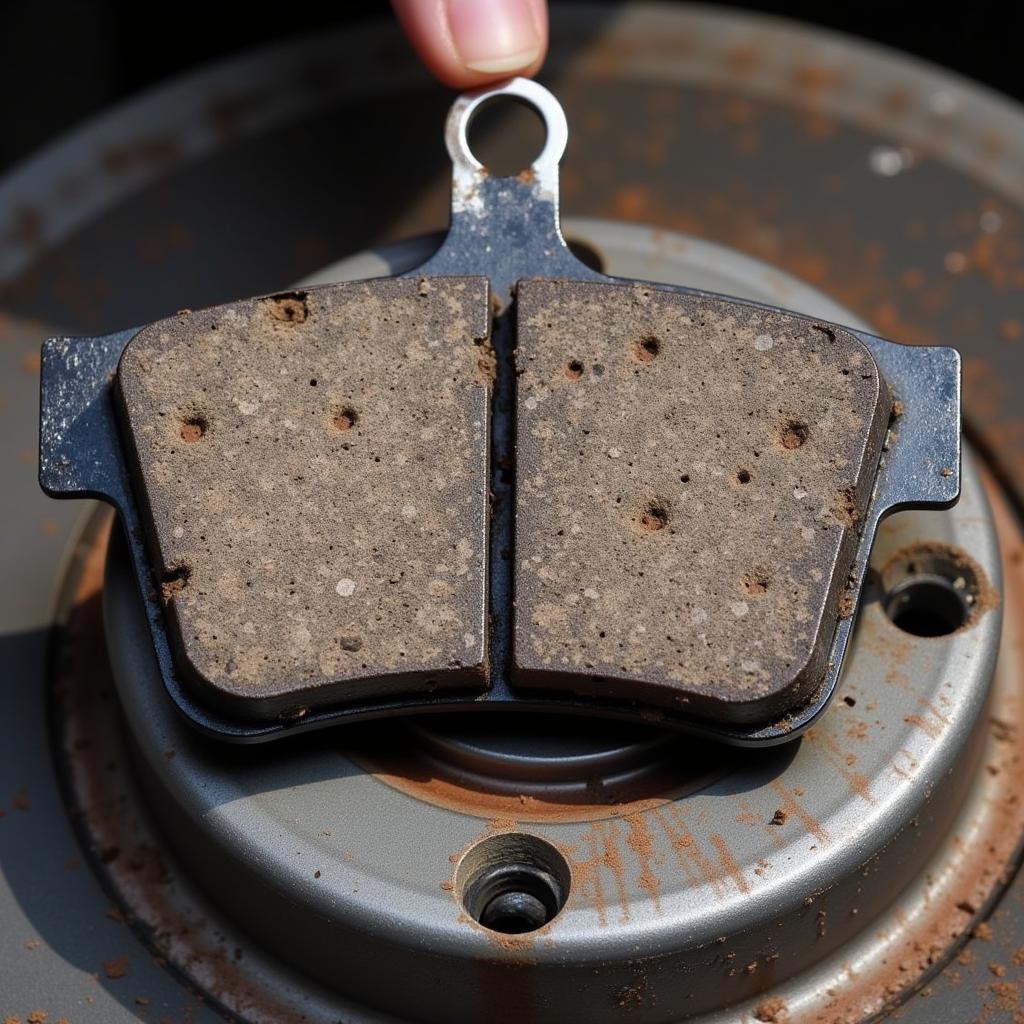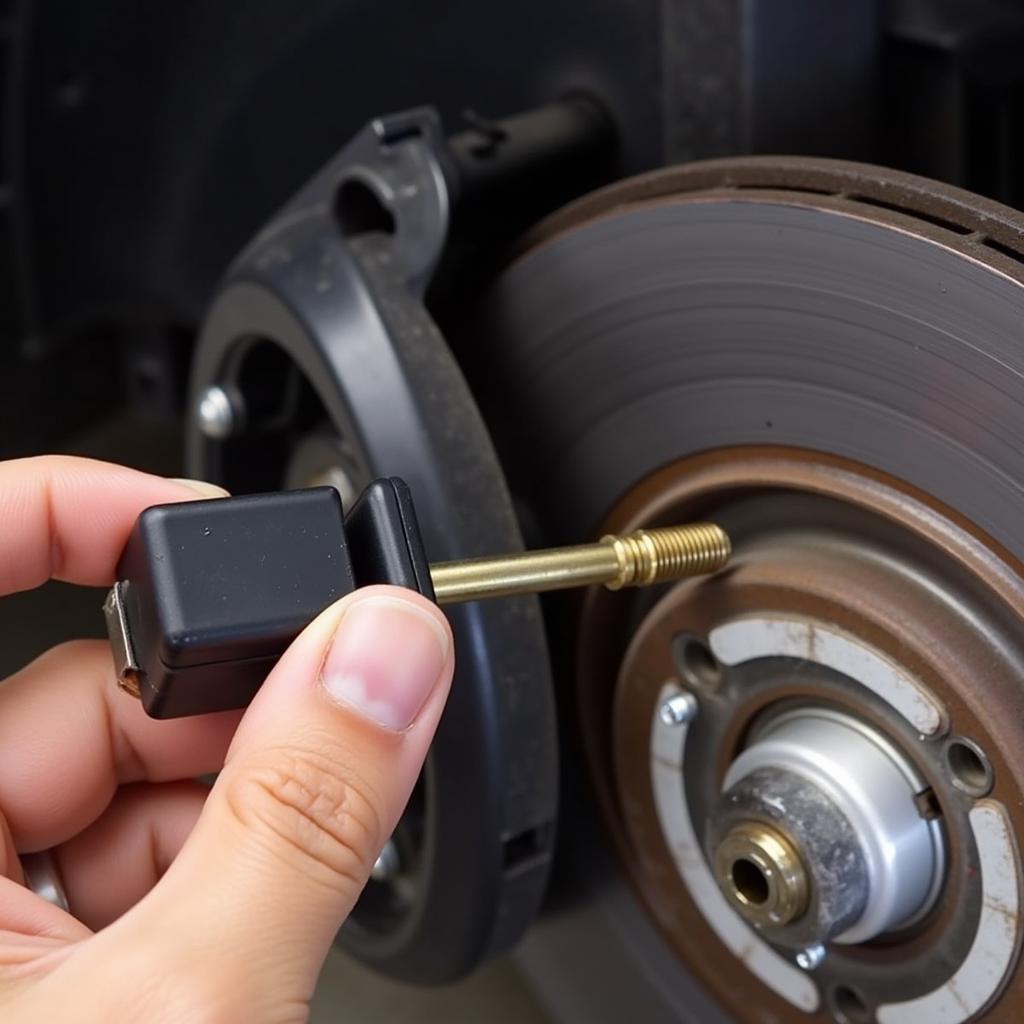Your car’s brakes are arguably its most important safety feature. Recognizing warning signs on a car brakes is crucial for preventing accidents and ensuring your safety and the safety of others on the road. Ignoring these signs can lead to costly repairs and, more importantly, dangerous driving situations.
Brake problems can manifest in various ways, from subtle changes in feel to obvious audible warnings. Knowing what to look and listen for is the first step in addressing potential issues. For example, if your brake pedal feels spongy, this could indicate a problem with your brake fluid. More about this later. You can find more information on JD Power brake issues at warning signs you need new brakes j.d power carsjd power.
Common Warning Signs Your Brakes Need Attention
Several key warning signs indicate your brakes require immediate attention. These include unusual noises, changes in pedal feel, and visual indicators.
Unusual Noises
-
Squealing or screeching: This is often the first sign of worn brake pads. A small metal indicator, designed to make this noise, rubs against the rotor when the pads are thin. Don’t ignore this!
-
Grinding: A loud, metallic grinding sound indicates that your brake pads are completely worn down, and metal is rubbing against metal. This can damage your rotors and lead to significantly more expensive repairs.
-
Clicking or clunking: These sounds might suggest loose components within the brake system, such as calipers or brake pads.
Changes in Pedal Feel
-
Spongy pedal: If your brake pedal feels soft, spongy, or goes too low to the floor, it could indicate air in the brake lines or a leak in the brake system. This requires immediate attention.
-
Hard pedal: A hard brake pedal might mean a problem with the brake booster or a vacuum leak.
-
Pulsating pedal: If your brake pedal pulsates or vibrates when you apply pressure, it often signals warped rotors.
Visual Indicators
-
Brake warning light: This light on your dashboard can illuminate for various reasons, including low brake fluid, a problem with the ABS system, or a malfunctioning parking brake. Learn how to address this warning light by checking out how to turn off brake warning light.
-
Fluid leaks: Check for leaks around your wheels and under your car. Brake fluid is typically clear or yellowish and has a slightly oily consistency. A leak can lead to brake failure.
 Brake Pad Wear Indicator
Brake Pad Wear Indicator
What Should I Do if I Notice Warning Signs?
If you experience any of these warning signs on a car brakes, take your vehicle to a qualified mechanic immediately. Delaying repairs can worsen the problem and lead to more extensive and costly damage.
Finding a Qualified Mechanic
-
Ask for recommendations: Friends, family, and online reviews can help you find a reputable mechanic.
-
Check certifications: Look for mechanics certified by the National Institute for Automotive Service Excellence (ASE).
-
Get multiple estimates: Compare prices from different shops before making a decision.
Preventing Brake Problems
Regular maintenance is key to preventing brake issues. Follow your vehicle’s recommended maintenance schedule for brake inspections and fluid changes.
Regular Maintenance Tips
-
Brake pad replacement: Replace your brake pads before they wear down completely.
-
Brake fluid flush: Flush your brake fluid according to your manufacturer’s recommendations. This helps to remove moisture and contaminants that can damage brake components. You can find additional information on warn brake pads at what do warn brake pads look like on a car.
-
Rotor inspection: Regularly inspect your rotors for warping or excessive wear.
“Regular brake maintenance is not just about saving money; it’s about ensuring your safety on the road,” says John Smith, ASE Certified Master Technician. He adds, “Ignoring warning signs can lead to dangerous situations and significantly more expensive repairs down the line.”
Conclusion
Being aware of the warning signs on a car brakes is essential for safe driving. Promptly addressing these signs can prevent accidents and save you money in the long run. Regular maintenance and timely repairs are vital for keeping your brakes in optimal condition and ensuring your safety on the road. Don’t hesitate to consult a qualified mechanic if you notice any problems with your brakes. For those interested in brake fluid warning lights on older vehicles, check out 82 c10 brake fluid warning light. Also, for information on dynamic brake control, see dynamic brake control warning light.
“Remember, your brakes are your lifeline on the road. Don’t ignore the warning signs,” reminds Jane Doe, Automotive Safety Expert.

